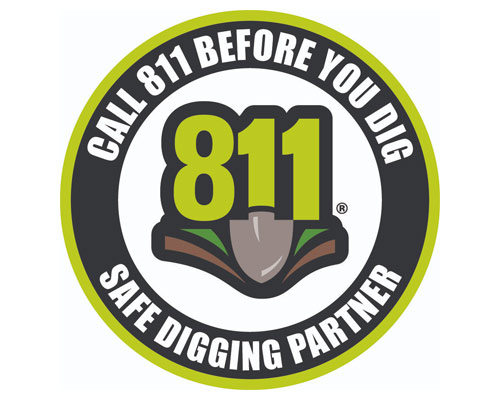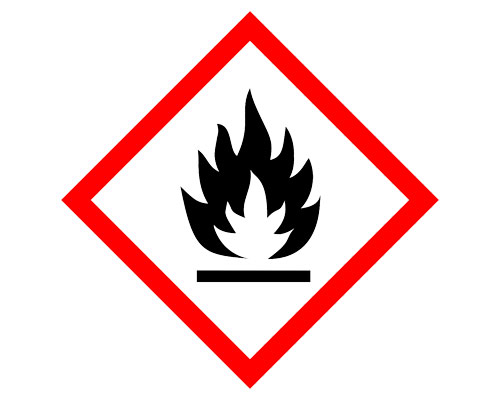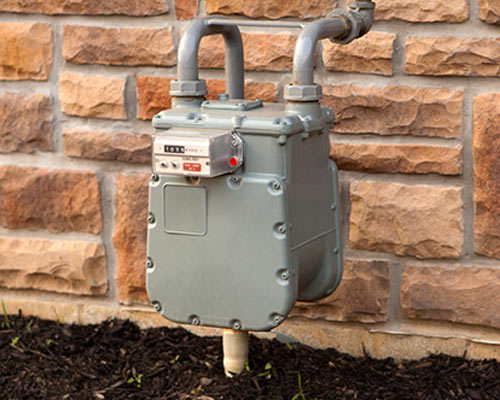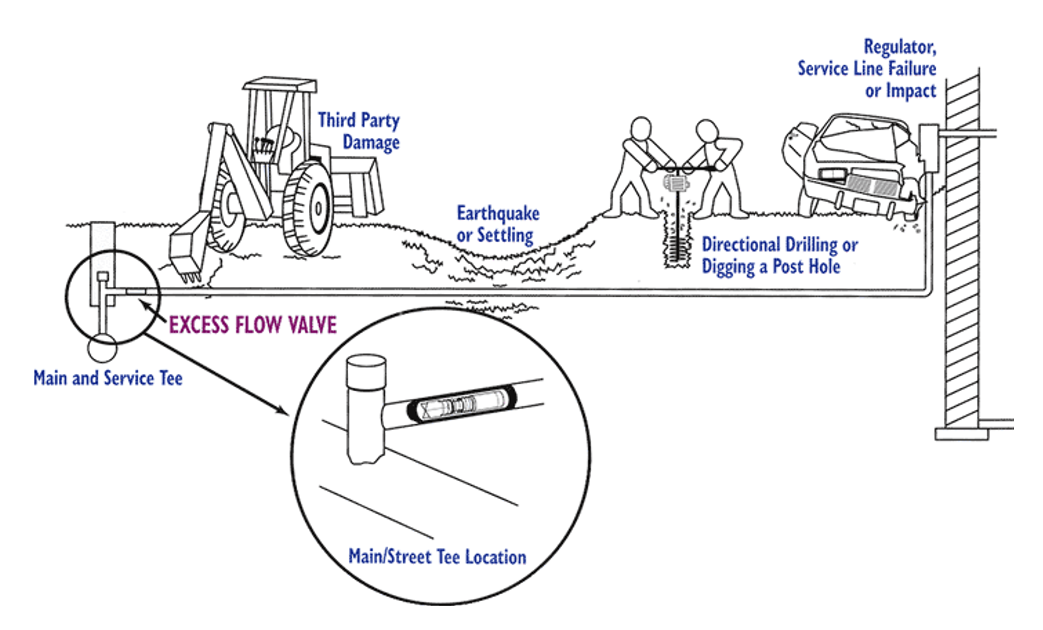
Carbon Monoxide
Carbon Monoxide is an odorless, tasteless, non-visible gas that can be formed when fuels like charcoal, coal, gasoline, kerosene, natural gas, oil, propane or wood are burned without a sufficient supply of air. Carbon Monoxide can be produced when appliances are not properly installed, maintained or used; When vent pipes become clogged with debris; When vent pipes have gaps, leaks, spaces and rust-thru spots; Also, when appliances are improperly vented and too many appliances are vented to one vent pipe. Exposure to Carbon Monoxide poisons the body and can cause serious illness or death. Symptoms may include headaches, dizziness, and nausea. The best prevention for carbon monoxide problems is to have appliances installed properly and periodically inspected.

Damage Prevention Awareness
Chester County Natural Gas Authority (CCNGA) may operate pipelines near your home. The purpose of these pipelines is to provide natural gas service to our customers in a safe and efficient manner. Chester County Natural Gas Authority provides reliable service with an excellent safety record.
Excavating and other activities associated with construction or landscaping is the leading cause of damage to buried pipelines. For your safety and the safety of our pipeline, state law requires you to notify CCNGA through a one-call system prior to excavating or performing earth-moving activities. When planning to dig, simply dial 811 to contact Palmetto Utility Protection Service (PUPS). PUPS can also be reached at 1-888-721-7877. A minimum notice of 72 business hours prior to excavating is required in South Carolina. Remember, DO NOT DIG before calling 811!
Leaks on natural gas pipelines are rare however, despite the best efforts to prevent pipeline leaks, they can occur. Signs of a leak include:
– The smell of rotten eggs
– Dead or discolored vegetation
– A hissing or roaring sound
– Dirt or debris blowing up into the air
– Flames if a leak has ignited
If you notice any of these conditions:
– Shut off any machinery or equipment to avoid creating sparks
– Leave the area immediately and warn others to stay away
– Do not strike a match or start an engine
– Do not operate a cell phone or electric switch in the area
Contact your local fire department (911) and call Chester County Natural Gas Authority at 803-385-3158. Do not use a telephone at or near the leak site to place this call.
Give us your name, phone number, a description of the leak and your location.
For additional information about this topic or for any other way we may be of service, please contact our Chester office at 803-385-3157 or Great Falls office at 803-482-2442 or 1-800-671-2865.

Flammable Vapors
Vapors from flammable liquids can explode and catch fire causing death or severe burns. VAPORS cannot be seen. They are heavier than air and can go a long way on the floor. They can be carried from other rooms to the pilot flame by air currents.
DO NOT use or store flammable products such as gasoline, solvents, or adhesives in the same room or area near ANY gas appliances. KEEP FLAMMABLE PRODUCTS far away from your appliances in approved containers. Make sure that containers are tightly closed and out of the reach of children.
Gas appliances such as water heaters that are installed in open garages must be installed eighteen inches above the level of the garage floor. This reduces the risk of gasoline or other flammable vapors being ignited by the main burner or pilot flame. Keep paper, curtains, paints, solvents, etc., away from gas appliances. They can be a fire hazard.

Water Temperatures
WATER TEMPERATURES OVER 125 DEGREES FAHRENHEIT CAN CAUSE SEVERE BURNS INSTANTLY
Children, the disabled, and the elderly are at highest risk of being scalded. See instruction manual before setting the temperature at the water heater. Feel water before bathing or showering. Temperature limiting valves are available. See your water heater owner’s manual.

Protect Your Meter
Your outdoor natural gas meter and equipment are designed to withstand winter weather conditions, but heavy or hard-packed snow and ice, or water dripping from your roof and freezing on your meter can present a safety hazard. To avoid problems, customers are urged to follow some basic tips:
Keep your meter clear of snow and ice.
- Make sure your meter is visible at all times and accessible for maintenance and emergency responders.
- Never let snow completely cover your meter.
- Do not shovel snow up against your meter.
- NEVER kick or hit the gas meter or its piping to break away built-up snow or ice. Keep your eaves troughs clear
- Water dripping from your roof, or freezing rain, can create an icy build-up on your gas meter and connections.
- Protect your meter from dripping water which would freeze on the meter and pressure regulator.Why is it so important to keep your meter clear?
- Accumulated snow places stress on your meter piping-damage to the piping can cause a gas leak.
- In case of emergency, emergency response crews need clear access to your meter.
- Blocked regulator vents may result in abnormal pressure, affect appliance operation, and interrupt service.

Excess Flow Valves
EFVs are mechanical shut-off devices that can be installed in the service line next to the mainline near the street. An EFV is designed to shut off the flow of natural gas automatically if the service line breaks, for example, by an excavation accident. Stopping the flow of gas from a broken service line significantly reduces the risk of natural gas fire, personal injury and/or property damage. Click here to learn more about CCNGA’s installation of EFVs.
